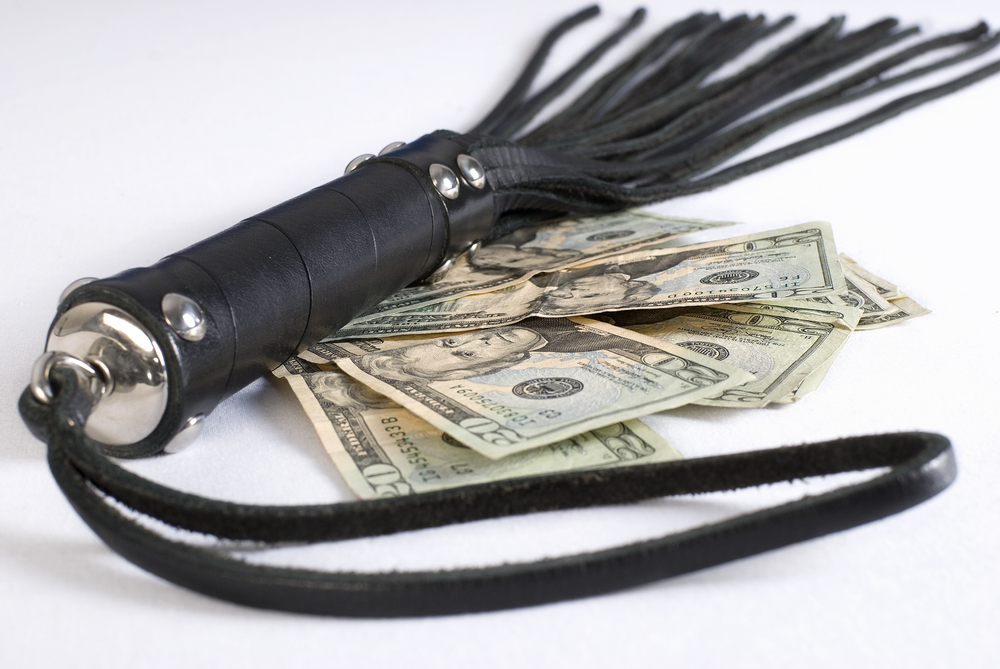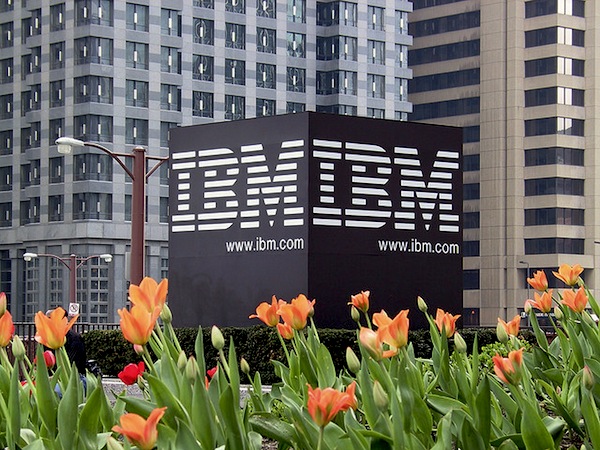
Tech companies will conquer Hollywood in 2013
I wrote here nearly a year ago that there would be no more annual lists of predictions and I’m sticking to that, but I want to take the time for a series of columns on what I think will be an important trend in 2013 -- the battle for Hollywood and home entertainment.
The players here, with some of them coming and some of them going, are Amazon and Apple and Cisco and Google and Intel and Microsoft and maybe a few more. The battleground comes down to platforms and content and will, by 2015 at the latest, determine where home entertainment is headed in America and the world for the rest of the century. The winners and losers are not at all clear to me yet, though I have a strong sense of what the battle will be like.

I blame Ronald Reagan
As the father of a precocious first grader I can relate somewhat to the children and parents of Newtown. My son Fallon goes to a school with no interior hallways, all exterior doorways, and literally no way to deny access to anyone with a weapon. Making this beautiful school defensible would logically begin with tearing it down. But the school design is more a nod to good weather than it is to bad defensive planning. The best such planning begins not with designing schools as fortresses or filling them with police. It doesn’t start with banning assault weapons, either, though I’m not opposed to that. The best defensive planning starts with identifying people in the community who are a threat to society and to themselves and getting them treatment. And our failure to do this I generally lay at the feet of Ronald Reagan.
I’ve written about Reagan here before. When he died in 2004 I wrote about a mildly dirty joke he told me once over dinner. It showed Reagan as everyman and explained to some extent his popularity. Also in 2004 I wrote a column that shocked many readers as it explained how Reagan’s Department of Justice built brick-by-brick the federal corrections system that it knew would do nothing but hurt America ever since, making worse both crime and poverty all in the name of punishment.

Instagram concedes nothing
By now most of us have read or heard that Instagram (now part of Facebook) proposes a change to its terms of service to allow the company to use your pictures and mine in any fashion it chooses, including selling the pics to third parties. So if you don’t want your baby pictures to risk being used in a beer ad, we’re told, you should close your Instagram account by January 15th. One pundit called this move Instagram committing suicide, but I think something else is going on.
Can’t you just see the meeting at Facebook in which this idea was first presented? ”It’s a whole new revenue stream!” some staffer no doubt howled. “If our users are oblivious or stupid enough to let us get away with it, that is. Maybe we can sneak it through over Christmas”. We’ll see shortly, won’t we?

Like the Grinch, policymakers hang our gifts over the fiscal cliff
Most of us have had mentors, and when it came to becoming a writer three of mine were the late Bill Rivers at Stanford, who taught me to think and not just report; legendary book editor Bob Loomis at Random House, who felt I might be able to stack enough of those thoughts together to fill a book; and a guy most of you know as Adam Smith, who let me copy his style.
Smith, named after the English economist and writer, helped start both New York and Institutional Investor magazines while at the same time punching out books like The Money Game and Paper Money -- huge best sellers that taught regular people how the financial system really worked. That gig explaining the inner workings was what appealed to me. So 30 years ago, having been recently fired for the second time by Steve Jobs, I went to New York and asked permission of Smith to imitate him, though applying his style to technology, not finance. Many such impersonators exist, of course, but I was apparently the first (and last) to ask permission.

Intel will go from being Microsoft’s bitch to being Apple’s?
Just weeks after I wrote a column saying Apple will dump Intel and make Macintosh computers with its own ARM-based processors, along comes a Wall Street analyst saying no, Intel will take over from Samsung making the Apple-designed iPhone and iPod chips and Apple will even switch to x86 silicon for future iPads. Well, who is correct?
Maybe both, maybe neither, but here’s what I think is happening.

IBM has a big problem
I heard from dozens of readers yesterday morning about a message IBM sent to its current employees concerning their 401K plan -- changing it from a contribution in every paycheck to a single contribution at the end of the year. Of course if you are laid off that means no annual contribution, less retirement savings, but a real bonus to the company. This, in itself, isn’t worth a column. It’s just Scrooge IBM being more Scrooge-like in search of that 2015 earnings target. What is worth a column is putting this news in the context of IBM having failed its recent internal security audit, which should concern IBM customers.
What, they didn’t tell you?

Musicians fault Vinyl Vaults
Do you remember Napster? Not the paid streaming music service sold last year to Rhapsody, but the original peer-to-peer music sharing service that was hugely popular from 1999-2001 when it went down in a legal ball of flames over copyright infringement. Well something Napster-like is emerging from Amoeba Music, the huge pre-owned music and video stores in Berkeley, San Francisco and Los Angeles and some musicians and vinyl junkies are up in arms about it, though I can’t understand why.
Napster was a peer-to-peer service that allowed people to share their music collections online. Amoeba's Vinyl Vaults service is similar in that the company rips tracks from old records as they come into the stores then throws them up on a webpage where they can be downloaded, but not for free. Amoeba charges money.

Shame on you, Meg Whitman
Corporations, especially big American ones, file lawsuits all the time for many reasons. Often they sue to force others to comply with agreements or to punish non-compliance with the law. But sometimes they sue, well, just because they can. I suspect that is what’s happening in Hewlett Packard’s current fight over Autonomy, the UK software company HP bought two years ago for $11.1 billion. The HP board seems determined to demonize Autonomy founder Mike Lynch for being smarter than they are.
Given the smarts that HP board has shown in recent years, we may all be at risk of being sued by the company.

'Apple is greedy'
My son Fallon, who is six and still hasn’t lost any teeth, has a beef with Apple, iTunes, and the iOS App Store. "Apple is greedy", Fallon says. But he has come up with a way for the company to improve its manners through a revised business model.
Fallon would like to buy more apps for his iPod touch, but the good ones cost money (what Fallon calls computer money) and he has been burned in the past by apps that weren’t really as good as the reviews suggested, probably because the reviewers weren’t six.
"If I buy an app and I don’t like it, I want Apple to give me my money back", Fallon says. "Or maybe they can keep a little of it. Here’s my idea. If I buy an app and delete it in the first hour I get all my computer money back. If I delete it after a day Apple can keep 10 pennies from every dollar. If I delete it after two days Apple can keep 20 pennies. If I keep the app for 10 days or more I can’t get any money back".

Paul Otellini isn't enough -- fire Intel's board of directors, too
Two days ago, Paul Otellini resigned his position as CEO of Intel. Analysts and pundits weigh-in on the matter, generally attributing Otellini’s failure to Intel’s late and flawed effort to gain traction in the mobile processor space. While I tend to agree with this assessment, it doesn’t go far enough to explain Otellini’s fall, which is not only his fault but also the fault of Intel’s board of directors. Yes, Otellini was forced out by the board, but the better action would have been for the board to have fired itself, too.
If there was a single event that triggered this end to Otellini’s tenure at Intel I’m guessing it is Apple’s decision to abandon Intel chips for its desktop computers. There has been no such announcement but Apple has sent signals to the market and the company doesn’t send signals for fun. The question isn’t if Apple will drop Intel but when and the way product design changes are made the when is not this Christmas but next.

JOBS Act leaves most startups out in the cold
Earlier this year I wrote a series of columns about crowdfunding and the JOBS Act, which was signed into law last April with several goals, one of which is to help startups raise money from ordinary investors. Those columns were about the promise of crowdfunding and the JOBS Act while this one is about what progress has been made so far toward that end. For startups, alas, the news is not entirely good. Crowdfunding looks like it may not be available at all for the smaller, needier companies the law is supposedly designed to serve.
It’s one thing to pass a law and quite another to write rules to carry out that law. Title 3 of the JOBS Act required the US Securities & Exchange Commission to write rules for the so-called crowdfunding intermediariesor portals specified by the Act, to choose or create a regulator to monitor those new entities, and to write rules clarifying how deals could be advertised to non-accredited middle-class investors.

A few very smart people can make the difference
A couple weeks from now we’re going to start serializing my 1992 book Accidental Empires: How the Boys of Silicon Valley Make Their Millions, Battle Foreign Competition, and Still Can’t Get a Date. It’s the book that was the basis for my 1996 documentary TV series Triumph of the Nerds and ultimately led to this column starting on pbs.org in 1997.
What goes around comes around.

I smell a rat behind eBay's wildcard search change
Late last month, eBay, the dominant auction site, took away from users the ability to search auction listings with wildcard keywords, which can be very useful to buyers looking for very specific part numbers or product series. It is (or rather was) easy to store wildcard searches on eBay as a powerful way of drilling down through millions of items as they are listed. No more. And eBay’s reason for eliminating wildcard searches? “Our research showed that using specific terms to expand one’s search was a more effective method than wildcard searches, which oftentimes included unexpected variations that cluttered search results. By removing the wildcard (*) advanced search functionality, we’re able to deliver search results more efficiently and faster".
Yeah, right. Yes, it probably is more accurate to list individually all possible permutations of a search term, but if they can be replaced nearly as well with a single asterisk, why make users do it the hard way?

Star Trek replicator is closer to reality than you think
In video "Can Nanotechnology Create Utopia?" physicist Michio Kaku talks about the upsides, downsides, insides and outsides of having a replicator like on Star Trek to make anything we’d ever need or want. It’s a compelling vision and he’s right that its implications go far beyond the economic to include cultural, social, even psychological. Kaku says it’s possible to make such a device and suggests we’ll have it in 100 years.
I say we’ll have it in 20.

Hurricane Sandy is a a data disaster
Earlier this week, as Hurricane Sandy beat the crap out of the Eastern seaboard, I received an email message from lower Manhattan. You may have received this message, too, or one just like it. It felt to me like getting a radiogram from the sinking Titanic. An Internet company was running out of diesel fuel for its generator and would shortly drop off the net. The identity of the company doesn’t matter. What matters is what we can learn from the experience.
The company had weathered power outages before and had four days of diesel fuel stored onsite. Managers felt ready for Sandy. But most of their fuel wasn’t at the generator, it was stored in tanks in the building basement -- a basement that was soon flooded, the transfer pumps destroyed by incoming seawater. It was like a miniature Fukushima Daiichi, not far from Wall Street.

